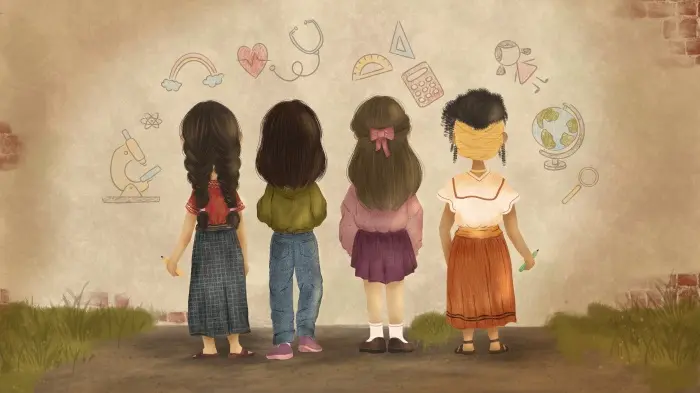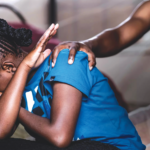- 91 rape cases brought before the courts between Jan and April
- Analysis reveals alarming gap between rape reports and prosecutions
Between January and April 2025, a total of 91 rape cases were brought before Lesotho’s courts, a staggering figure that sheds light on a worsening crisis of sexual violence across the country.
This investigation was sparked by a casual conversation in the newsroom, prompted by the growing number of rape reports shared on the Lesotho Mounted Police Service (LMPS) Facebook page.
That online pattern led to a deeper inquiry, one that revealed not only the disturbing scale of reported cases but also the vulnerabilities of victims and the systemic challenges in addressing this form of violence.
Driven by the need to understand the full scope of the problem, we examined official police records, uncovering a disturbing national trend that demands urgent attention.
The 91 rape cases brought before courts in just the first four months of 2025 include both recent incidents and older cases that finally reached the prosecution stage.
These figures highlight not just the persistence of sexual violence but also possible improvements in case processing, though the rate of convictions remains unclear due to limited public data.
As in previous years, all the perpetrators identified in these cases were male, echoing research that shows sexual offenders make up a significant proportion of Lesotho’s prison population.
The geographic spread of cases reveals a troubling concentration in some districts. Maseru recorded the highest with 23 cases and Mafeteng followed closely with 22.
Qacha’s Nek reported 12, Berea recorded 11, Botha-Bothe had 7, Mokhotlong saw 5, Thaba-Tseka, Mohale’s Hoek, and Leribe reported 3 cases each, while Quthing registered the lowest with 2.
This distribution reveals not only hot spots for sexual violence but also the need for localised responses tailored to district-level dynamics.
Among the 91 reported cases, four victims were women with disabilities, highlighting a particularly vulnerable group. Two of these cases occurred in Mafeteng, with one each in Mokhotlong and Maseru.
Even more harrowing is the fact that 34 out of the 91 cases involved children aged between 3 and 18 years. The youngest victim was just 3 years old, and the oldest was an 87-year-old woman, illustrating the indiscriminate nature of this violence.
While victims included both males and females, the majority were girls and women, reinforcing existing gender-based vulnerabilities.
This rise in reported cases aligns with earlier national trends. According to a 2022 Bureau of Statistics crime statistics report, sexual offences were the third most reported serious crime in Lesotho, making up 11.6 percent of all serious crimes, or 1,383 cases.
Maseru Urban accounted for 23.7 percent of these, followed by Maseru Rural (13.4 percent) and Leribe (12.1 percent). Quthing and Mokhotlong had the fewest reports, at 4.3 percent and 5.5 percent, respectively.
If 1,383 cases of sexual assault were reported to the police in 2022 that is an average of 345 cases every four months. However, in the same four-month period in 2025, only 91 cases were prosecuted.
While this number is still high, it illustrates a significant disconnect between reporting and prosecution, suggesting that many survivors are not seeing justice through the courts.
According to UNFPA, as of 2024, an estimated 86 percent of Basotho women have experienced some form of gender-based violence (GBV) in their lifetime.
Lesotho continues to rank among the most dangerous countries for women globally, third in the world for reported cases of rape per capita and sixth for murder rates, figures that surpass even those of conflict-ridden nations.
In the broader African context, Equality Now highlights the ongoing struggle against sexual violence and calls for stronger implementation of continental legal frameworks.
One such instrument is the Maputo Protocol, a critical tool in the fight for gender equality, survivor protection, and accountability for perpetrators.
The Protocol sets out clear legal obligations for African Union member states. Key provisions include:
- Article 2: Calls for the elimination of all forms of discrimination against women through affirmative action and legal reforms.
- Article 4: Guarantees women’s right to life, bodily integrity, and security, and explicitly prohibits exploitation, cruel treatment, and all forms of violence.
- Article 8: Ensures equal protection before the law and access to justice, including legal aid and gender-sensitive judicial training.
- Article 11: Obligates states to protect vulnerable groups such as asylum seekers, refugees, returnees, and internally displaced women from violence and sexual exploitation.
- Article 14(2)(c): Upholds women’s reproductive rights by allowing medical abortion in cases of rape, incest, or where pregnancy threatens the health or life of the mother or fetus.
Equality Now urges all AU member states, including Lesotho, to fully align national laws with the provisions of the Maputo Protocol to better protect women and girls and ensure justice is accessible to all survivors of sexual violence.
Summary
- Between January and April 2025, a total of 91 rape cases were brought before Lesotho’s courts, a staggering figure that sheds light on a worsening crisis of sexual violence across the country.
- That online pattern led to a deeper inquiry, one that revealed not only the disturbing scale of reported cases but also the vulnerabilities of victims and the systemic challenges in addressing this form of violence.
- Lesotho continues to rank among the most dangerous countries for women globally, third in the world for reported cases of rape per capita and sixth for murder rates, figures that surpass even those of conflict-ridden nations.

Ntsoaki Motaung is an award-winning health journalist from Lesotho, specializing in community health stories with a focus on sexual and reproductive health and rights, as well as HIV. She has contributed to platforms like “Be in the KNOW,” highlighting issues such as the exclusion of people with disabilities from HIV prevention efforts in Lesotho.
In addition to her journalism, Ntsoaki serves as the Country Coordinator for the Regional Media Action Plan Support Network (REMAPSEN). She is also a 2023 CPHIA Journalism Fellow.








